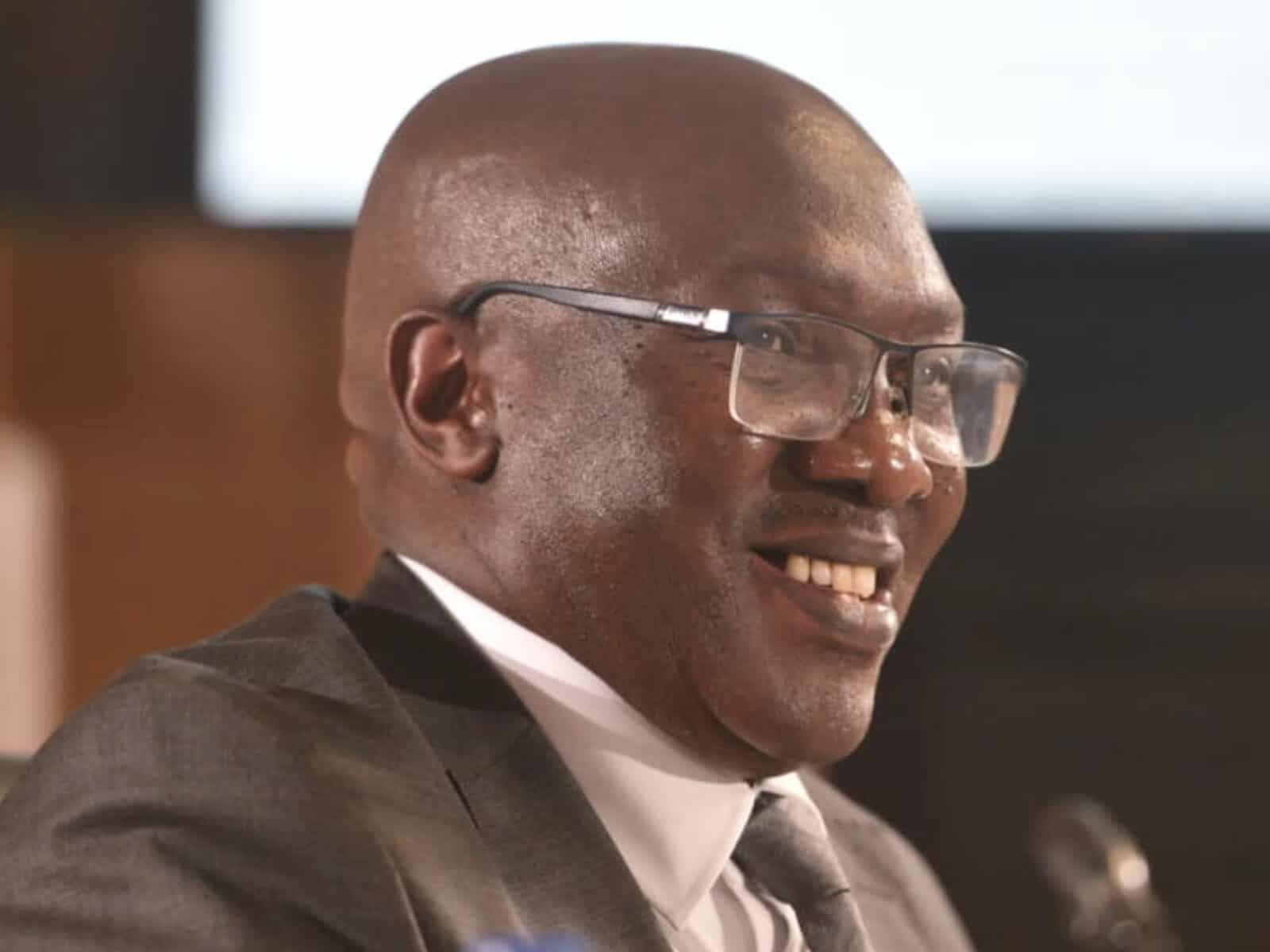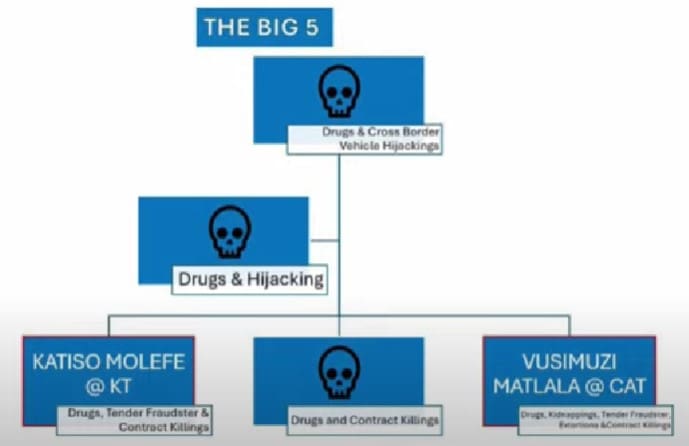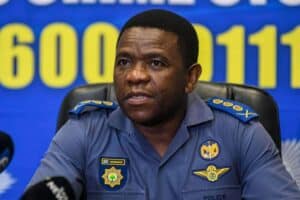KZN Crime Intelligence commissioner Lieutenant-General Dumisani Khumalo delved into the mechanics of a prominent national cartel.

Accused criminal kingpins Katiso Molefe and Vusimuzi “Cat” Matlala have been identified at the Madlanga Commission of Inquiry as being two prongs of a prominent cartel.
Police divisional commissioner of Crime Intelligence Lieutenant-General Dumisani Khumalo said on Monday that the recently arrested businessmen were key figures in the cartel known as the “Big Five”.
Khumalo was giving evidence on the KwaZulu-Natal (KZN) Political Killings Task Team (PKTT), where he earlier said that disbanding the team was not due to “poor performance or lack of impact”.
‘Big Five’ cartel
During the second half of his afternoon appearance, the commissioner broke down the inner workings of a cartel he labelled the ‘Big Five’.
Asked how he defined a cartel, Khumalo explained it was a group of highly sophisticated criminals who came together in the form of an enterprise with different areas of expertise.
He presented a slide which showed five parts of an organogram.
Molefe and Matlala were at the base of the organogram, with one of the Big Five on the same level as them and two others at incrementally higher positions denoting greater superiority.
Khumalo explained that the identities of the other three senior members of the cartel could not be made public just yet, due to ongoing investigations, but did elaborate on their alleged crimes.
“The main commodity of the cartel in question is illicit drug trafficking — nationally and internationally — which is then coupled with contract killings that are associated with the drug trafficking processes.
“The other commodity is cross-border vehicle hijacking, kidnappings, tender fraud and also extortions, mainly related to drug trafficking,” Khumalo said.

Private security fronts
The commissioner explained that legitimate business enterprises were used by the cartel to mask their operations.
Private security companies were the front operations of choice for members of this cartel and its associated syndicates, as Khumalo said it gave members easy access to firearms.
Due to Gauteng’s economic connectivity, it was the cartel’s headquarters. However, the Western Cape and KZN were important transport nodes as they allowed access to port cities.
Khumalo added that syndicates operated within the cartel and featured the blending of criminal operations with legitimate businesses.
“This allows them to have influence at all levels, especially at local level where the cartel activities are originating from — both in the underworld and broader society,” said Khumalo.
He claimed that members were headhunted, that membership was fluid and on a contract basis, and that frequent international travel and dual citizenship were common.
“The most important thing in this cartel is they value loyalty and common history, as well as proven capability, especially to influence the investigations and prosecutions of incidents involving the cartel members,” said Khumalo.
Whatsapp evidence incoming
Khumalo said the evidence he would present to the commission would include WhatsApp conversations between Matlala, senior police officials, and businessmen.
The commissioner committed to disclosing five specific chats taken from Matlala’s mobile phone when he was arrested.
The chats will feature conversations including Brown Mogotsi, Major-General Lesetja Senona, son of Major-General Thato Senona, EMPD acting chief Julius Mkhwanazi and Calvin Rafadi.
Shortly before the day’s sessions adjourned, Khumalo said the messages would elaborate on how influential figures attempted to disband the PKTT.
The presentation of Khumalo’s evidence will continue at 9.30am on Tuesday.
NOW READ: ‘Cat’ Matlala caught again: SIU reveals three syndicates in Thembisa hospital corruption






